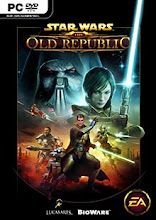Religion figures dominantly in Donut Days. Emma is a conflicted young lady. On one hand, Emma values her Christian faith. She has doubts, but on the whole, she accepts Christianity’s most basic tenets. On the other hand, Emma craves exposure to other views, opinions, and beliefs. She has no interest in attending a Christian-based college when she graduates from high school. In the middle of the book, when Emma’s father delivers an ultimatum that Emma either attend a Christian college or pay for college herself, Emma experiences a meltdown that forces her to choose between her family and her desire for a more secular life.
In the middle of all this religious doubt lies a mild-mannered mystery involving her parents and the congregation’s wealthiest member. It seems the church is considering buying some land on which to build a new church. Emma, with the help of her friend/boyfriend, uncover the fact that the land is actually polluted and that the congregation’s wealthiest member is secretly behind the sale. The two join forces and manage to reveal the plot, but the congregation doesn’t react quite the way they anticipated.
Finally, Emma attends a camp that sprung outside a soon-to-open donut store appropriately called Krispy Dream. Emma dreams of being a journalist one day and plans on using the camp’s inhabitants as source material for an article that she hopes will win a college scholarship contest. She stumbles upon a biker gang that recently discovered Jesus, gets to know them and their life stories, and thinks about using one of them as the source of her article.
I do heartily recommend Donut Days, though girls are going to be more interested in it than guys. The book does a good job of portraying a teen in conflict, in terms of boys, her family, and the religion that she loves but that threatens to smother her. Emma does spend some time talking about how hot her boyfriend is, putting the book firmly in “Chick” book territory. Still, Emma’s struggle with religion and family issues will likely strike a chord with most young adult readers and that alone make it a worthwhile read.










